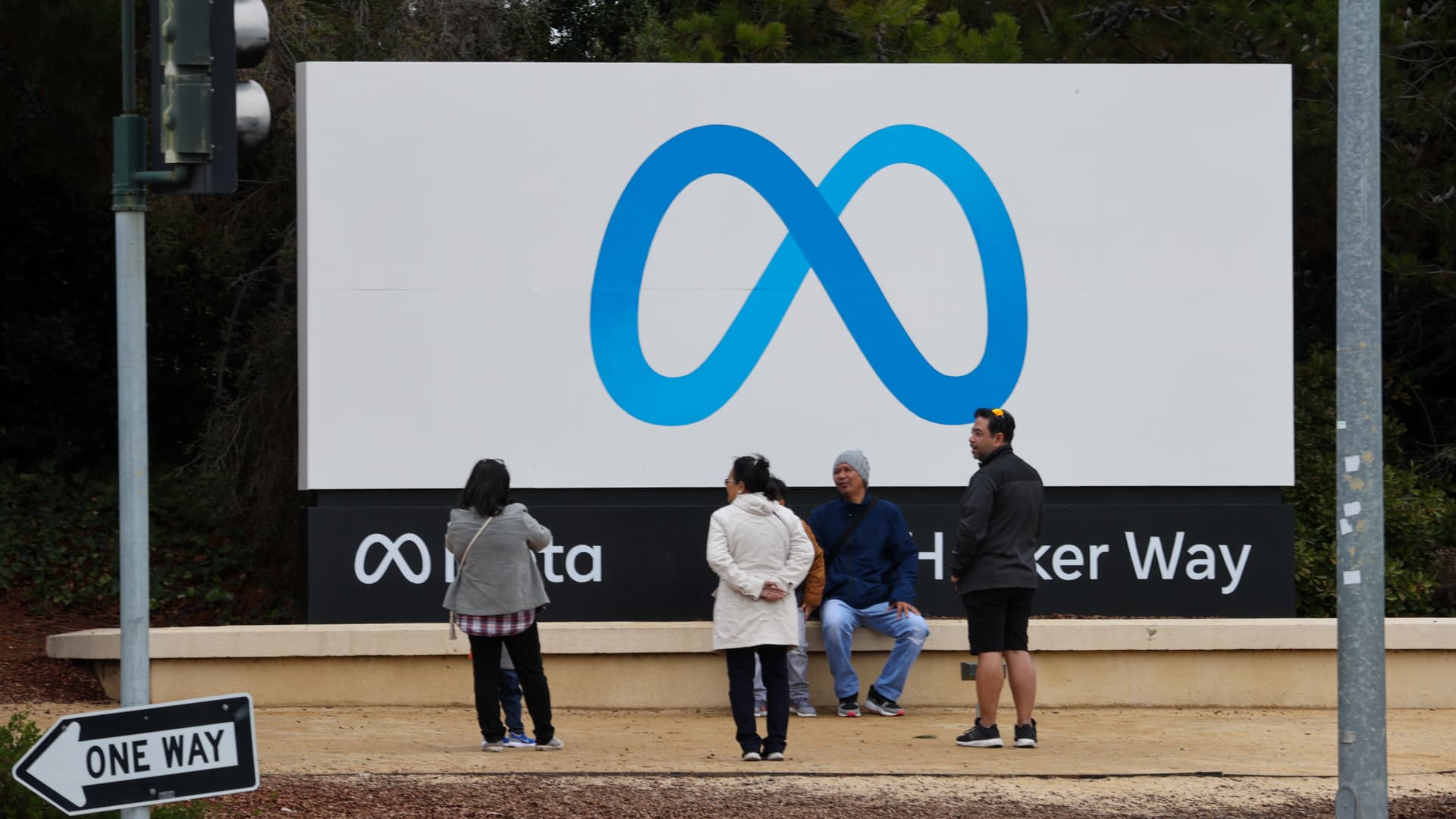
Meta ‘s decision to pay a dividend has many investors speculating who may be next to return quarterly income to shareholders. According to Goldman Sachs, there are several that may fit the bill. Meta’s surprise announcement came last week during its fourth-quarter earnings report. The 50 cent quarterly payout will begin on March 26. While the tech giant joins other megacap dividend payers like Microsoft and Apple , many other large names still pay no dividend, including Alphabet and Amazon . In fact, companies have turned more to stock buybacks in recent years. About 70% of companies repurchased shares in 2023, up from just 3% in 1995, according to Goldman Sachs. Meanwhile, the number of dividend payers is roughly unchanged over the past 30 years at 66%, the firm found. “Companies are more likely to initiate a dividend if they are large, earnings are stable, profit margins are high, and valuations are low,” Ryan Hammond, Goldman’s U.S. equity strategist, said in a note Monday. That said, he expects buybacks to be the primary cash return strategy from companies given their flexibility, impact on per-share metrics and anti-dilutive effects, he added. “However, for companies with stable cash flows, and especially those already with large buyback programs, using a dividend could signal confidence about future earnings and attract a new group of income-oriented investors to the register,” Hammond wrote. META 5D mountain Meta’s 5-day performance Meta’s announcement could also be the extra push some companies need. In the past, initiating a dividend could have been seen as a sign of a lack of growth ahead as companies shift money to shareholders instead of perhaps investing in the business, said Sarat Sethi, managing partner and portfolio manager at DCLA. That’s not the case for Meta, which will continue to spend money on its future and still has some leftover to return to shareholders, he explained. “In addition to Facebook’s earnings being so positively received, the dividend announcement was also positively received,” said Sethi, who owns shares of Meta, Apple, Amazon and Alphabet. “Other companies that don’t have a dividend, it is a good indication to them that the capital markets will look at it favorably. If [Meta] got dinged badly, no one would want to even look at it,” he added. According to Goldman Sachs, recent academic studies have shown about a 1% cumulative return for stocks around dividend increases and a 2% return around dividend initiations. However, since many of those announcements are made during earnings, it is difficult to parse out the specific catalysts, Hammond noted. To determine who may be next to initiate dividend payouts, Goldman Sachs used a modeled historical analysis to find those that don’t currently pay a dividend but have the fundamental characteristics typically associated with dividend payers. The firm used variables such as net profit margins, sales growth, market cap size, buyback yield, earnings before interest, taxes, depreciation, and amortization (EBITDA) during the past five years and valuation (as measured by enterprise value-to-sales). Goldman excluded financials, real estate and utilities companies. The analysis spans Russell 3000 companies with sufficient data from 2003-2023. Here are the top 10 names with the highest modeled probability of initiating a dividend, according to Goldman Sachs. Meta’s fellow megacap tech names Alphabet and Amazon both made Goldman’s list, with the former landing in the top spot. Alphabet has estimated consensus sales growth of 11% for 2024, while Amazon has a consensus estimate of 12% sales growth. Between the two names, Alphabet is more like Meta in that they are both not highly capital intensive businesses, DCLA’s Sethi said. Amazon, on the other hand, has its retail business. Last week, Amazon reported better-than-expected earnings and revenue for the fourth quarter and gave optimistic guidance for the first quarter. Alphabet also posted an earnings and revenue beat for its fourth quarter. However, ad revenue missed expectations, sending shares down temporarily. Meanwhile, luxury furniture retailer RH has been struggling amid high mortgage rates. In December, the company reported a revenue miss for its third quarter and decreased its revenue guidance for the full year. However, management said it expects demand trends to accelerate through the first half of 2024. RH has a consensus estimate of 4% sales growth for 2024 and a 37% last-twelve-month buyback yield. Also on the list is auto-parts retailer AutoZone , which announced in December it was repurchasing an additional $2 billion of the company’s common stock. It has a consensus estimate of 6% sales growth for 2024 and a last-twelve-months buyback yield of 9%. Lastly, Charter Communications has a consensus estimate that predicts 1% sales growth for 2024 and a last-twelve-months buyback yield of 5%. On Friday, the company reported adjusted EBITDA of $5.57 billion for the fourth quarter, missing the $5.62 billion expected from analysts polled by StreetAccount. It also said it expected capital expenditures for the full year between $12.2 billion to $12.4 billion, more than the $12.04 billion expected. — CNBC’s Michael Bloom contributed reporting.
